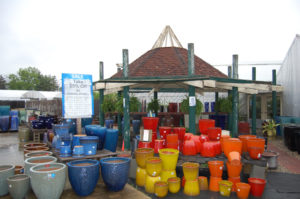
It Takes People, People!
I’ve mentioned in past columns that what has the biggest impact on your customers’ experience and your brand image isn’t your advertising and marketing, your product, your displays or your pricing; it’s the lowest-paid members of your team — the folks in the garden center with the hose in their hands answering questions about where to find products, the folks stocking the displays and helping the customers take their purchases to their cars, the folks sweeping up the dirt from a plant the customer’s kid knocked over, the cashiers trying to move customers through the lines as efficiently as possible while keeping a smile on their faces after being on their feet for four hours straight.
It is these individuals — your seasonal and often part-time employees — who are the most visible representatives of your brand, who have the most interaction with the customers, and have more impact on your customers’ experience than you and your management team do. Sure, you and your senior team create the vision, strategies, and tactics, but it’s your customer-facing team that is on the hook to execute.
Recognizing the critical importance of entry-level, part-time associates is one thing; finding them, hiring them, and retaining them is becoming a challenge. The COVID pandemic provided the impetus for many workers to re-assess their work/life balance, creating The Great Resignation, a “free-agency movement,” especially for low-income employees, to switch jobs that provide higher wages, better hours, and improved working conditions. Driving this movement is the confluence of multiple factors, including:
- A 3.9% unemployment rate (4.5% is considered as “full employment”). There are millions more open positions, particularly in the retail and hospitality industries, than there are people to fill them.
- More financial security; Americans built up $2.7 trillion in extra savings during the covid-related government support programs, plus we’re currently in a period of rising wages
- Lack of childcare, preventing parents — especially mothers — from returning to full-time employment.
- COVID-related workplace stress felt in positions with close customer contact, such as retail; the highly contagious omicron variant adds to the workplace fears of virus spread.
- Increased workloads due to fellow workers on sick leave or in quarantine.
With the supply and demand scale weighted in the workers favor, the workers have the upper hand, leaving their current positions to seek/demand opportunities that can better address their personal needs, such as workplace safety, higher pay, more and flexible hours, and enhanced work/life balance. As a result, we’ll likely see changes in flexibility, skills-based hiring, training opportunities, and a new chance to re-engage with worker and employer from a place of trust and support that’s been lacking in the workplace.
Hiring and Keeping Good Employees
So, what are retailers doing to attract and retain the employees needed to take care of their customers as well as driving sales and profits? Here are a few of the activities that some key retailers are enacting in this effort.
Patagonia is a privately held, high-end international sporting goods and apparel manufacturing and retail company that has a unique business model; their mission is simply stated and direct — to make the world a better place for all living things in it. It produces its products in the most environmentally and socially responsible way, including nearly 90% of its products are made from recycled materials and 100% of its U.S. electricity comes from renewable resources. It self-imposes a 1% environmental tax on all sales, which is donated to environmental nonprofits. Patagonia’s “Save the Earth” culture attracts new and retains existing employees of like mind, as the company and employee values are very closely aligned and mutually supportive.
It’s committed to “not to be bound by convention,” and has undertaken some initiatives that are almost unheard of in retail:
- Closed all stores, offices, and warehouses in the U.S. on Election Day to allow and encourage both employees and customers to vote.
- Black Friday: Did not run any off-price sales or promotions and donated 100% of all revenues generated that day to local environmental organizations and initiatives.
- Closed all stores, HQ and regional offices, and warehouses in the U.S. and Canada from Dec. 25 to Jan. 2 because “our people need a break.” Their website accepted orders during this period, with a note advising that they wouldn’t be processed until after Jan. 3. Oh, and all employees were fully paid during this closed period. Patagonia’s philosophy is that, while other retailers care about their customers, Patagonia cares about people, including its own people.
Amazon has about 1.3 million employees worldwide and is hiring about 25,000 new employees per month on average to fuel its business expansion and fill back on turnover. The majority of Amazon positions are warehouse and distribution/logistics jobs with relatively high turnover due to the high productivity expectations measured for each employee, resulting in high stress.
To attract new employees and to retain current workers, Amazon provides excellent benefits, effective on day one of employment for the employee and his/her dependents. Some of these benefits include:
- Starting hourly wage of $18-20
- Flexible hours
- Paid medical, dental, life and accident insurance
- Parental leave
- 401K with a 50% corporate match
- Stock purchase plan
- Paid online college courses leading to debt-free associate’s and bachelor’s degrees
How IGCs Can Adapt
Now, let’s be real for a minute. As a small business, you most likely don’t have the resources to be able to temporarily close your doors during key selling periods to provide time off for your employees, or pay higher-than-market-rate wages, or provide a portfolio of benefits and pay for college credits as incentives to joining your organization or to keep them from jumping to a better opportunity.
But there are advantages to being a small company, such as being able to personally get to know your employees, understanding their individual needs, and developing positive intrapersonal relationships. As managers, you’ve mastered the skill set needed to grow and nourish plants, but have you honed the skill set needed to grow and nourish your employees?
So, what are some of the drivers that help mold an employee’s relationship with you and your company? Many of these drivers have morphed over the past two years of a COVID marketplace and it’s critical to keep pace with the changes to stay competitive and keep your employees happy. Here are examples of some of their drivers and needs:
- They want to be respected as people and individuals
- They want the flexibility to achieve and maintain work/life balance
- They want to be trusted
- They want to be involved in the business, knowing how their efforts benefits the team/company
- They want to be motivated and engaged
- They need to know what purpose they serve in the big picture
- They want to earn responsibility WITH accountability
- They need the tools needed to succeed
- They want to be communicated with (not “to”)
- They want their opinions and voices to be heard
- They want to be recognized for what they accomplish, and coached to improve
As leaders, you not only have the responsibility to manage your business, but to guide, direct, motivate and develop your people — those individuals who represent you to your customers and execute your mission. You may have to re-assess your roles and re-think your priorities to help develop and nurture your new and existing employees. Think about carving out the time needed to become a mentor, a coach, a teacher, as well as being the boss, setting and clearly communicating your expectations and actively listening to the needs and expectations of your employees … it’s a two-way street in today’s competitive people business!
Your company will never achieve its full potential without a committed and motivated team who believe in you and your mission, and you in them. Bottom line, it takes people, people…


















 Videos
Videos





